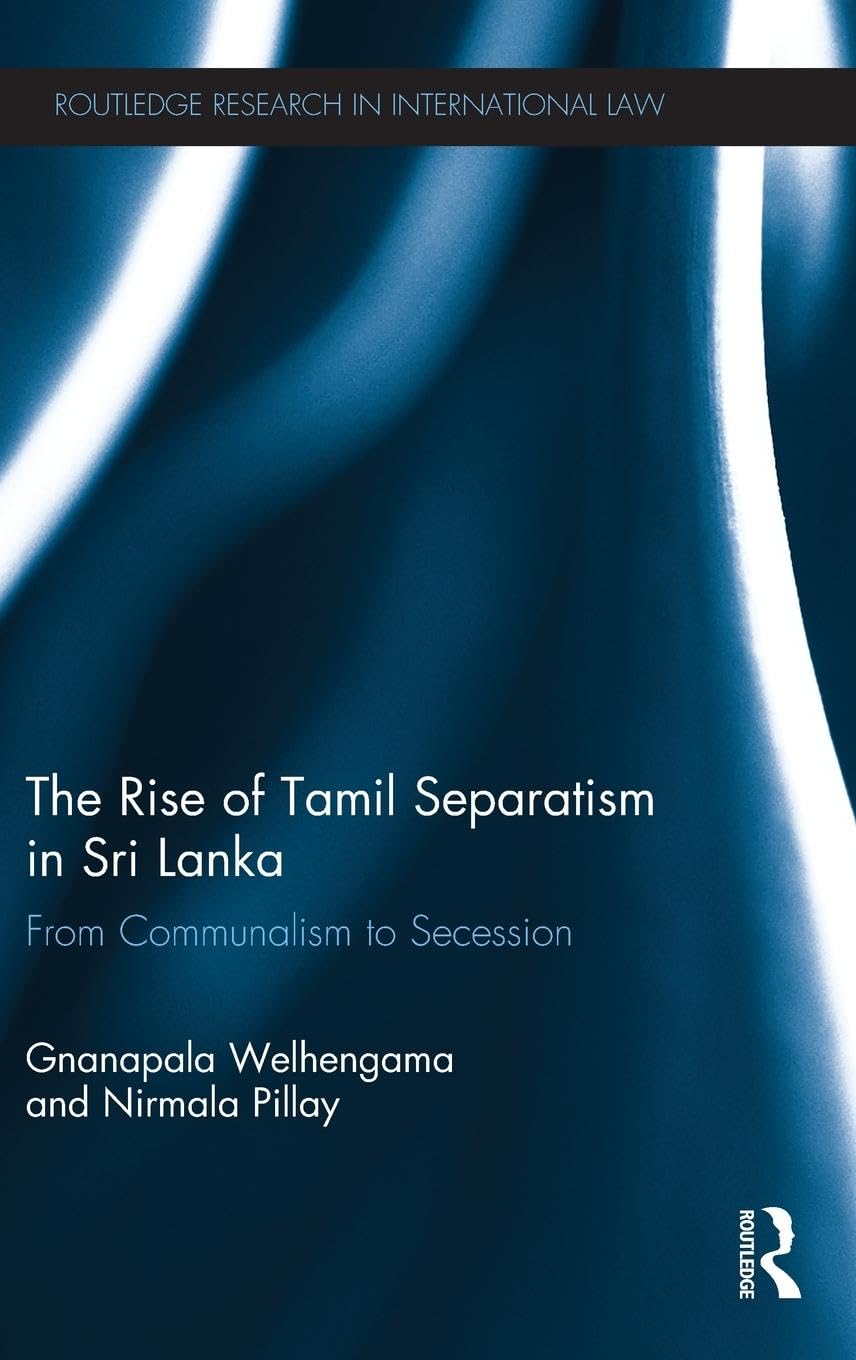The Rise of Tamil Separatism in Sri Lanka: From Communalism to Secession (Routledge Research in International Law)
The Rise of Tamil Separatism in Sri Lanka: From Communalism to Secession (Routledge Research in International Law) is backordered and will ship as soon as it is back in stock.
Couldn't load pickup availability
Genuine Products Guarantee
Genuine Products Guarantee
We guarantee 100% genuine products, and if proven otherwise, we will compensate you with 10 times the product's cost.
Delivery and Shipping
Delivery and Shipping
Products are generally ready for dispatch within 1 day and typically reach you in 3 to 5 days.
Book Details:
-
Author: Gnanapala Welhengama
-
Brand: Routledge
-
Edition: 1st
-
Binding: Hardcover
-
Number of Pages: 272
-
Release Date: 24-Feb-2014
-
ISBN: 9780415854863
-
Language: English
-
Package Dimensions: 9.3 x 6.2 x 0.8 inches
Product Description:
In the context of ongoing civil wars, armed secessionist movements, and minority uprisings, many conflicts stem from the struggle between a minority group’s desire for political self-determination and a nation-state’s resistance to cede sovereignty. As international human rights regimes have expanded, many minority groups have reframed their quests for self-determination, asserting their entitlement to self-rule if their cultural, linguistic, or ethnic identity is threatened.
This book delves into the intersection of minority rights, self-determination, and secession within international law, using the rise of Tamil separatism in Sri Lanka as a detailed case study. Welhengama and Pillay examine how Tamil communalism evolved into secessionist demands and analyze whether the Sri Lankan government has adequately addressed the Tamil community's right to self-determination without resorting to secession. The authors highlight the legal and human rights arguments used by the Tamil community in their fight for autonomy, illustrating how international law and human rights frameworks have influenced their secessionist cause.
Through a comprehensive examination of the Tamil separatist movement, this book provides critical insights into why modern nation-states are often threatened by separatist claims based on ethnicity and the complexities surrounding the right to self-determination.
Key Features:
-
In-depth analysis of Tamil separatism and its intersection with international law.
-
Examines the legal and human rights arguments for self-determination and secession.
-
Provides valuable insights into nation-state responses to separatist claims.





